|
How can we create the sustainable hydrogen society?
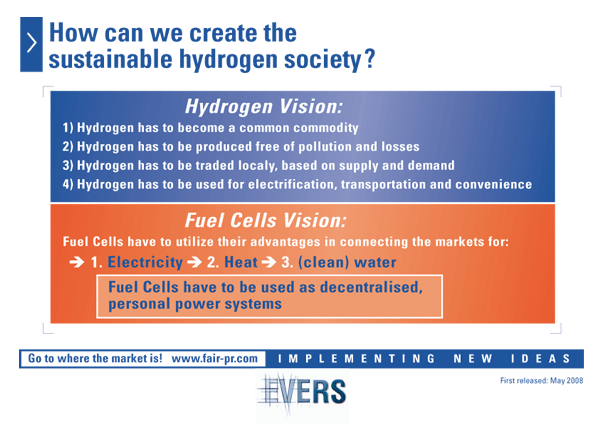
In order to create a sustainable hydrogen society, hydrogen has to become a common commodity, must be produced free of pollution and losses, has to be traded global, based on supply and demand and must be used for electrification, transportation and convenience. Fuel cells produce electricity not by combustion but by chemistry. Their advantages have to be utilized in connecting the markets for electricity, heat and (clean) water.
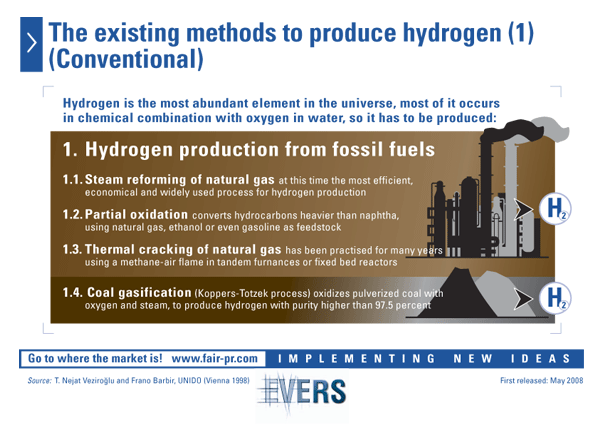
Hydrogen is the most abundant element in the universe, most of it occurs in chemical combination with oxygen in water, so it has to be produced. Today most of the hydrogen is produced from fossil fuels. The existing methods are shown here.
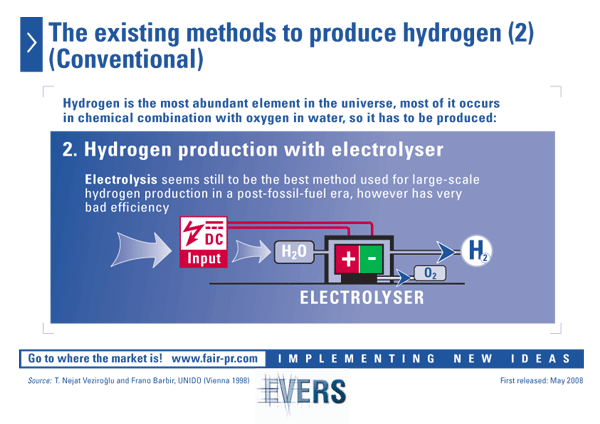
Another method is the hydrogen production from water through electrolysis. This is done with very bad efficiency.
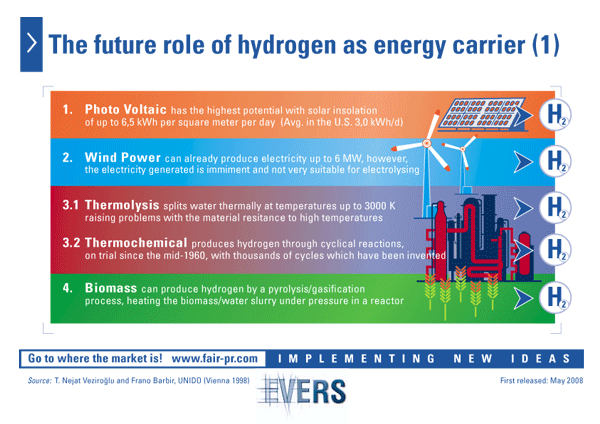
At present no hydrogen is actually being used by the end consumer. The design target for hydrogen production must be to use neither fossil fuels nor electrolysis but all existing renewable energies directly, to illiminate losses and to broaden the sources. All these processes have to be developed and complemented with novel methods. Down-scaled to be used in decentalised mass-markets, the user of the power will become its producer!
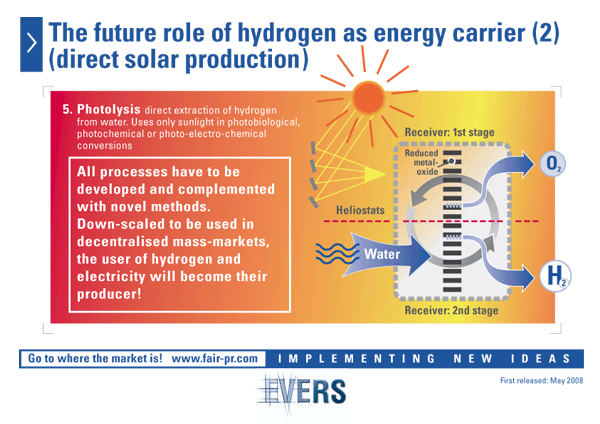
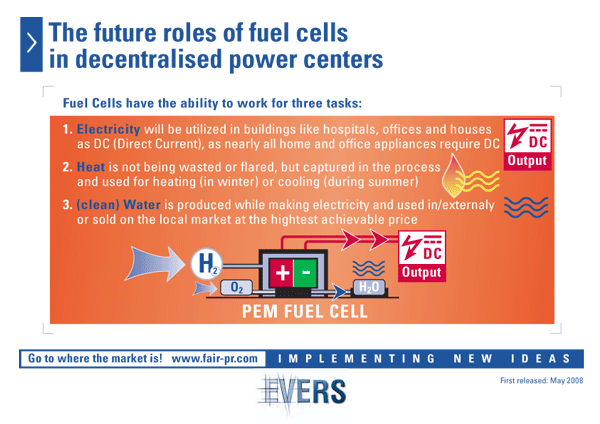
Fuel cells produce electricity not by combustion but by chemistry. Their advantages have to be utilized in connecting the markets for electricity, heat and (clean) water. Fuel Cells have to be used as decentralised, personal power systems in order to be implemented into the daily life. The overall efficiency of such decentralised power centers is by far better than any of todays existing energy systems!
Download pdf
|









